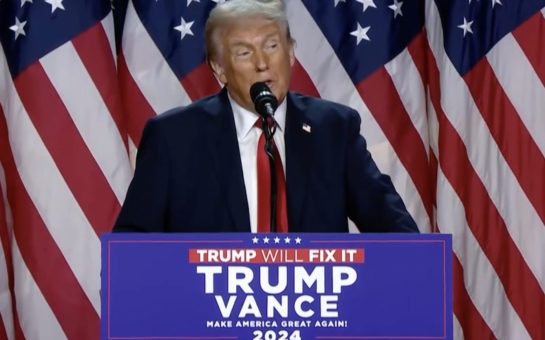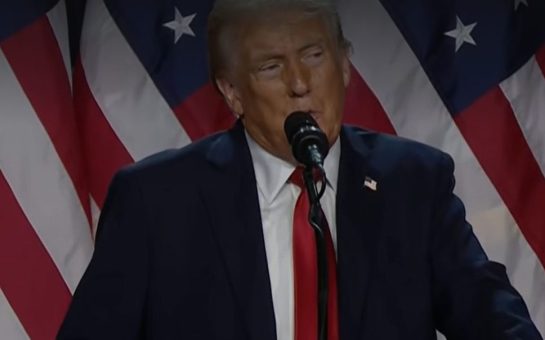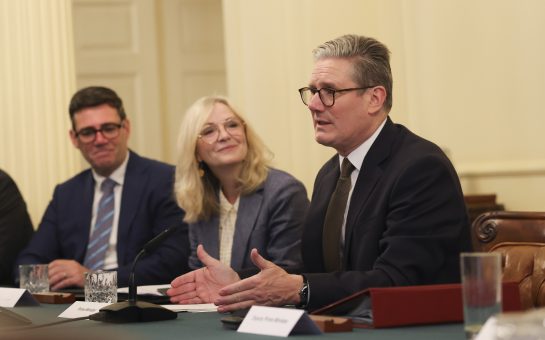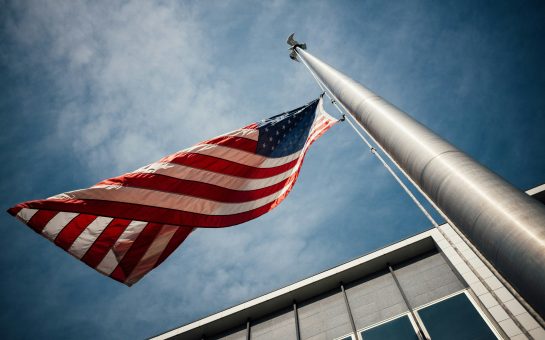‘I will put you in jail. You shit journalist trying to split this country. People will kill you. People hate you. They will kill you’.
These are the words of Mahinda Rajapaksa, brother of Sri Lankan president and the country’s defence secretary.
Taken in isolation the quote reveals a single domestic attitude towards journalistic freedom but, when looked at in a wider context, it forms part of a frightening worldwide shift against freedom of expression.
The tirade was aimed at Frederica Jansz, editor-in-chief of the Sunday Leader, who last year asked questions pertaining to his alleged abuse of power.
‘People will kill you’ was the response.
The Sri Lankan media staged a mass protest against press intimidation as a result. However, websites found to be criticising the government were raided by the police, who were also believed to have accessed journalists’ personal information.
Last month two French journalists were killed in Mali. Working for Radio France International in the northern city of Kidal, they were targeted and kidnapped by a regional wing of Al Qaeda.
The French are particularly unwelcome in that part of the world following their military intervention at the start of the year, but journalists seem unsafe wherever they go.
More recently journalist Glenn Greenwald issued a warning before he left The Guardian to begin his life as a champion of press freedom in sunnier climes.
“I really urge everyone to take note of, and stand against, what I and others have written about for years, but which is becoming increasingly more threatening: namely a sustained and unprecedented attack on press freedoms and the news gathering process in the US,” he wrote in his final Guardian column at the end of last month.
He continued: “That same menacing climate is now manifest in the UK as well.”
Inflated as it sounds, this statement is far from an exaggeration, as was frighteningly clear in the recent statements issued by Prime Minister David Cameron following the Snowden crisis.
He said in Parliament: “If they [the media] don’t demonstrate some social responsibility it will be very difficult for government to stand back and not to act.”
The criminalisation of journalistic freedom of expression is a scary thought, yet it is very much in evidence across the world.
This is the lasting message of the film Burma VJ. Primarily captured on a handheld camera, this documentary by Anders Østergaard on the suppression of journalism – that bastion of truth in repressive regimes across the world – was filmed during a crisis point of momentous intensity.
A revolution, spurred on by ludicrously increasing fuel prices, rages through the streets.
Monks hold their alms bowls upside down in a symbolic castigation of the military government, thousand-strong crowds of disenfranchised citizens cry out ‘our cause, our cause’ in startling unity, and their imprisoned leader Aung San Suu Kyi appears for the first time in years to great them.
Eventually barriers are set up and shots are fired. A monk is found floating upside down in a river. The offices of the Democratic Voice of Burma are ransacked, and the head of this brave feat of journalistic effort must start a new operation to reveal the reality of oppression in Burma.
All of this is filmed by a few intrepid video journalists who then send their footage to Norway where it is broadcast across the globe. Journalists suffering throughout world will no doubt have empathised with their plight.
Such guerrilla warfare is hardly synonymous with journalism in the western world, yet it is increasingly the result of virulent and unceasing political violation in more places than we may like to think.
British journalist Chris Blackhurst wrote in The Indepedent last month: “If the security services insist something is contrary to the public interest, and might harm their operations, who am I (despite my grounding from Watergate onwards) to disbelieve them?”
It’s difficult to disagree with Greenwald’s assessment of this statement as subservient and obsequious, but worst of all, a sign of the ‘death spiral of large journalistic outlets’.
Sentiments of such flagrant passivity do not even exist in Latin America, where the shadow of journalistic suppression used to mean a sanctioned death. In this part of the world censorship is still tightly controlled by the government and criminal syndicates silence the press by simply eliminating them.
In the decade since the dawn of this millennium 68 journalists were killed and 11 were abducted in Mexico alone. It is statistics like these that engender mass fear among the media, and yet self-censorship is still taboo.
Even in America, where liberty is king and a belief in truth is actively fostered, the press is not safe and is certainly not free.
In 2006, Reuters’s journalists Ali al-Mashhadani and Majed Hameed were released after months in military custody.
A further three journalists were killed by the US military when they shelled the Palestine Hotel in Baghdad. In a menacing response to the killings the Pentagon said a warzone is a ‘very dangerous place for journalists.’
A year earlier Eason Jordan, head of CNN’s news division, said the American military were deliberately targeting journalists during operations in Iraq.
Such claims may be a mark against then president George W. Bush, but they are a great deal more than that. A damning indictment of the supposed indissolubility of the principles of freedom of expression, the deaths of 12 journalists and the unwillingness of much of the press to report such atrocities is increasingly less shocking because it is increasingly more apparent.
In times of war the state can freely suppress information that is deemed useful to the enemy, anything that would erode allied relations, or information that would discourage the domestic population or the armed forces. With such a purposefully obscure remit, governments across the globe can call in reports on corruption, incompetence, military losses, and a whole host of other pivotal information of direct public interest.
There are mechanisms in place to ensure stringent control even in peace times.
The Zimbabwean Access to Information and Protection of Privacy Act punishes ‘abuse of journalist privilege’, such as the publication of material the government says is untrue, with hefty fines and imprisonment.
In 2005 editor of Cairo magazine, which could not be sold at the time due to its cover photo, said censors ‘don’t really give a reason for their decisions’. And polls about the ruling family cannot be published in Saudi Arabia, Morocco, Japan, and Thailand, while polls about ethnic groups, foreign relations, and defence policies are prohibited in Turkey, Venezuela, Syria, Palestine, Mexico, and North Korea.
As Guardian editor Alan Rusbridger prepares for his appearance before the House of Commons’ Home Affairs Select Committee next month, the MP’s kindly ‘inviting’ him to give evidence about his vital work in the publication of leaked documents that held catastrophic revelations about the extent of America’s security policy might take an hour and a half out of their day to watch Burma VJ.
They may then reflect on the fundamental need for journalistic freedom, and what is allowed to happen when nobody is allowed to speak out.
For more on this story and many others, follow Mancunian Matters on Twitter and Facebook.



